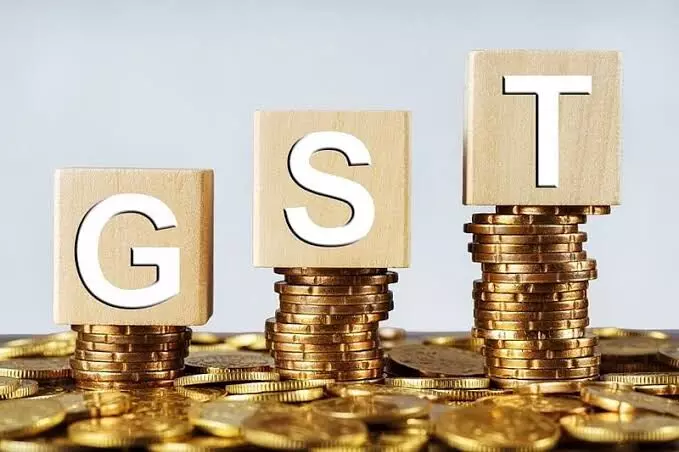
Common man in vortex of suffering
text_fieldsThe ruthless increase in tax on good of daily consumption that came into effect from Monday- a decision taken by the GST Council in its 47th meeting last month in Chandigarh - has plunged the life of the common man of India into darkness. One has to note that a five percent tax was levied on all essentials from rice, wheat, flour, meat, fish, paneer, milk, curd, curd, and pappad. GST on items ranging from ink, blade, knife, paper cutter, pencil sharpener, bicycle pump, and LED lamp has been increased to 18 percent. There is also an 18% tax on bank cheques book, contracts given by central and state governments, and local bodies for roads, bridges, railways, hospitals, educational institutions, etc. In this way, no commodity or service is left out of the scope of GST, or the percentage of which has not been sharply increased.
No one denies the basic truth that central and state governments need money to govern and carry forward with their day-to-day administration and development activities. But the people have to live with hardships to pay taxes and vote governments to power. There is no doubt that if the scale and scope of GST are expanded day by day, the ability to survive of the common man will become a serious question mark. Those who doubt it have to only turn their eyes to Sri Lanka, lying south of India. After queuing for kilometers, they can't get even a litre of oil; vehicles are not running anymore, schools are shut, and shops are empty of essentials. There is no medicine or treatment in hospitals. As life came to a complete standstill, the world had to witness the spectacle of people taking to the streets, surrounding the presidential palace, storming into its interior, and looting everything in sight. The president who ran for his life left the country and mailed his resignation while looking for a way to live as a fugitive. Parliament, parties, and the bureaucracy are making a last-ditch effort to maintain the democratic government. Neighbouring countries including India are unable to meet the needs of the people in the crisis-hit country with the assistance they provide. The world is waiting with a sigh to see if the old Lanka will ever return. Few would forget that until yesterday, Parliament, democracy, elections, and parties were there too. Like us, fanatical nationalism was at its peak in Lanka. The primary lesson that should be learned from Sri Lanka is that the rulers were gambling with the fate of the crores of people there.
Emotionally charged speeches, claims and constant declarations alone are no guarantee of peaceful and prosperous survival. Nothing extraordinary will happen if the names given by the British are swept away and replaced with Hindu-Sanskrit sounds. Don't think that just because the sculpture of the lions in the national emblem exudes bravery, Indian men will be brave. They primarily need food, clothing, shelter, medical care, education, and employment. Law and order should prevail in the country. Peaceful life should be possible. Smugness and heroism are not enough to achieve this. The pattern of imprisoning those who speak the truth will not work in this era. So let there be open discussions and debates both inside and outside Parliament. Let the facts come out, let the anti-people attitudes be corrected honestly, let the judiciary and the media work freely, let the jails be open only for the criminals, and let the cries of the innocent be put to an end, the real way is transparent debates and not bans to prevent unpleasant words from coming out of tongues. If the experience of Parliament splitting up after presenting the government's agenda in the form of bills is going to repeat itself, then the fate of 75th Independence Day will be to be soaked in tears. Finally, consider where the pitiful situation of eighty Indian rupees for one US dollar will lead us.








